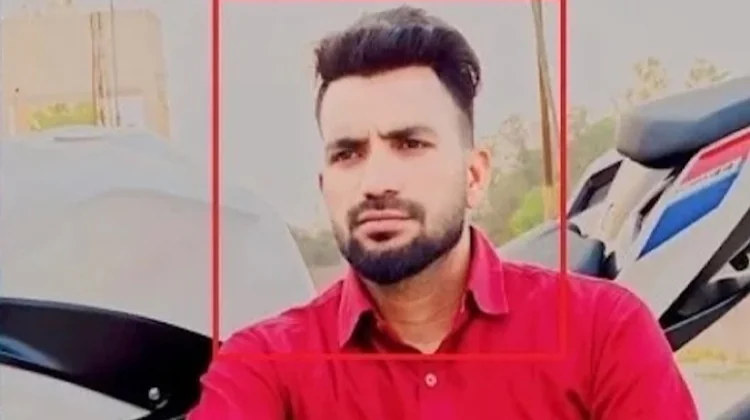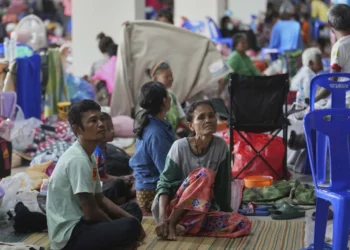
[Want even more content from FPM? Sign up for FPM+ to unlock exclusive series, virtual town-halls with our authors, and more—now for just $3.99/month. Click here to sign up.]
In another disturbing incident of crime on a Hindu by a Muslim in India, a 19-year-old woman named Neha was murdered by Taufiq Ur Rehman, a man she considered her “rakhi brother” after she refused his repeated proposals for marriage. A “rakhi brother” is a man whom a woman considers a brother after symbolically tying the sacred thread known as rakhi on his wrist during the Hindu festival of Raksha Bandhan celebrated between brothers and sisters. As a girl ties the holy thread (rakhi) on a man’s wrist, he vows to protect her. The incident occurred on June 23, 2025, in the Jyoti Nagar area of Delhi.
According to the Delhi police, Neha was alone on the terrace of her five-story residential building that morning when the accused confronted her. Taufiq, who had been harassing Neha for several months, had entered the building in a burqa to avoid identification. He then followed her to the terrace, where a heated argument ensued. Witnesses and police reports suggest that Taufiq strangled Neha with her dupatta, a lengthy shawl-like scarf, before pushing her off the terrace.
Neha’s parents, who were present in the house, rushed out after hearing their daughter’s screams, but it was too late to prevent the tragedy. Neha was found lying critically injured on a pile of bricks and was immediately taken to GTB Hospital, where she succumbed to her injuries within a few hours.
Neha’s father told the media that Taufiq had been obsessively pursuing his daughter, despite her clear rejections. “He used to come to our house often, and we treated him like family. Neha even tied a rakhi to him,” he said. “But over the past few months, he began pressuring her for marriage. When she refused, he started harassing her.”
According to the FIR registered initially under IPC Section 307 (attempt to murder), which was later amended to Section 302 (murder) after her death, Taufiq had been stalking Neha, calling her at her workplace and showing up uninvited at her residence. The police believe the murder was premeditated.
The murder caused widespread outrage in the locality. Angry locals demanded swift justice for Neha and stricter safety measures for women, particularly those from the Hindu community, who are an easy target for Muslims.
Police launched an intensive manhunt to track down Taufiq, who had fled the city after committing the crime. Using CCTV footage and electronic surveillance, law enforcement officials traced him to Rampur in Uttar Pradesh, where he was arrested two days later and brought back to Delhi for interrogation.
A senior officer involved in the investigation confirmed that Taufiq had confessed to the crime during questioning. “He admitted he was angry with Neha for rejecting his proposal, and was enraged upon learning that she knew about his impending engagement to another woman,” the officer stated.
The Delhi police have now charged Taufiq with murder, criminal trespass, stalking, and criminal intimidation. Officials are also verifying how he managed to enter the building unnoticed while disguised in a burqa. Investigators are reviewing CCTV footage from nearby shops and buildings, and a postmortem report has been completed.
The family has demanded the death penalty for Taufiq. “Our daughter trusted him like a brother. What he did is beyond betrayal—it’s pure evil,” said Neha’s grieving mother.
The crime has yet again highlighted the issue of Hindu women’s safety in India from Islamic predators. Activists have demanded stricter laws and quicker police response to harassment complaints, pointing out that early intervention might have saved Neha’s life.
Despite repeated cases of Hindu women being harassed, raped, or killed by Muslim men in India, governments at both central and state levels have failed to take strict, exemplary action. Abduction, sexual violence, and forced conversions by jihadi elements remain serious threats. A slow, indifferent judiciary and political unwillingness, driven by a desire to protect the Muslim voting bloc, have left Hindu women vulnerable. Their safety is often sacrificed for electoral gain, with no strong deterrents in place to prevent future crimes.
In Jalaun’s Orai area, in the Hindu heartland of Uttar Pradesh, a teenage girl accused a Muslim man named Sahil, his mother Reshma, and others of abducting her in May under the pretense of taking her to Hamirpur, where they forced her to convert to Islam and marry. She was later moved to Ahmedabad, Gujarat, where she alleges that she was raped. The victim and her family claim police failed to conduct her medical exam and delayed meaningful action. Though Sahil was jailed, no further suspects were pursued. Frustrated, the family held a protest at the collectorate, prompting authorities to order a medical examination and accelerate the investigation.
Both Uttar Pradesh and Gujarat are governed by the BJP, a party widely regarded as pro-Hindu. Yet the apathy shown in response to such a grave incident only reinforces the concerns raised above.
















